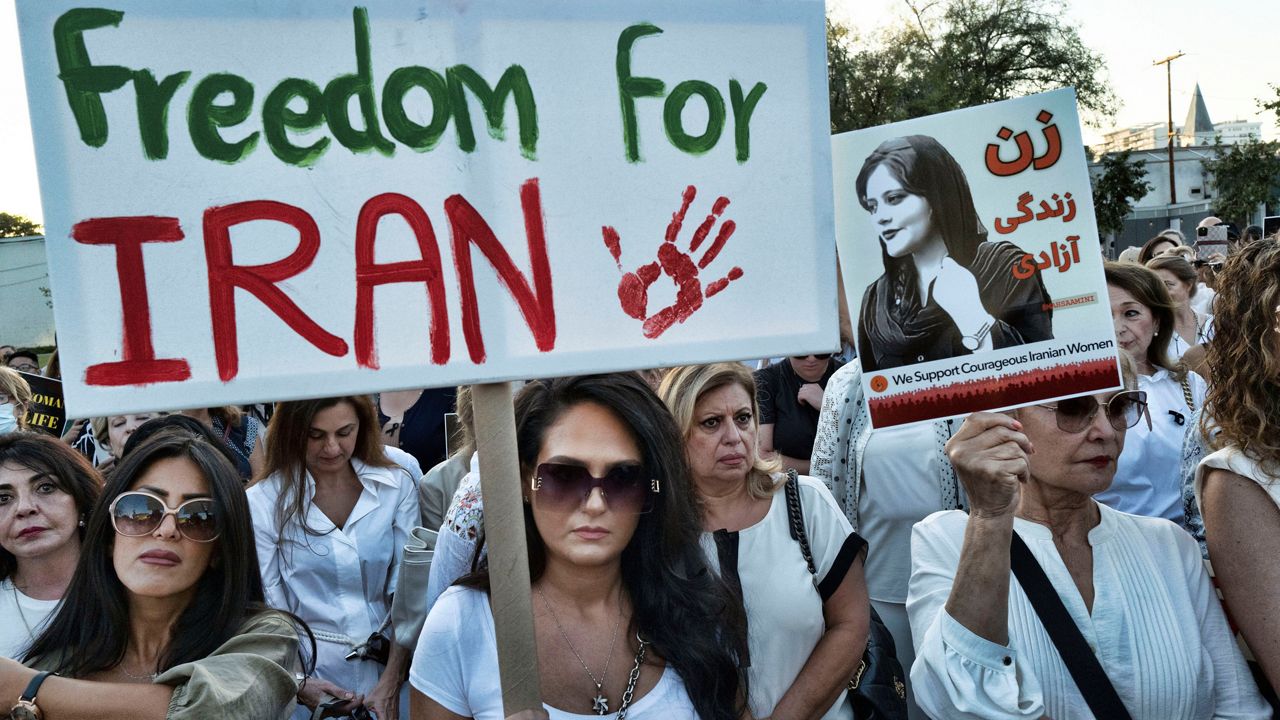IRVINE, Calif. — Protests over the death of 22-year-old Masha Amini at the hands of Iran’s morality police have sparked protests worldwide, with some experts worrying that unrest in Tehran will linger.
Two University of California, Irvine professors who observe and study Iranian politics and culture say the country’s unique cultural, political and religious identity makes it unlike any other in the region.
Mark Andrew LeVine, a UCI professor of modern Middle Eastern history, said the history of the nation’s current political structure would make it hard for protesters and the government to find common ground. He called the morality police, the force blamed for the killing of Amini, a “monument of the revolution.”
“To reign them in any official way would really signal a retreat of the revolution,” LeVine said.
It’s one of the qualities that makes Iran unique from other nations that, in recent memory, have experienced volatile riots or even revolutions. While Saudi Arabia has a force similar to Iran’s morality police, that institution has been scaled back in recent years. LeVine said Saudi Arabia, which has sought to become more western while Iranian leadership maintains strong anti-American sentiment, can weaken its religious enforcement without compromising its political identity.
While there is strong resentment in Iran toward the political and religious establishment, LeVine said protesters have an uphill battle.
“The easiest thing to do is to wait out the protests because eventually everyone needs to go to work,” he said. “It’s like a pickup basketball team against an NBA team in terms of the skills involved, so it’s really amazing it has gotten this far.”
While there’s a mismatch in organizational capability, LeVine said a path to resolution is unclear. Iran’s political and religious leaders have a pick of difficult options, and solutions of past governments, like mass killings or imprisonment, could inflame tensions rather than force compliance.
Economics has also been a complicating factor. Iran was hammered during the pandemic by high death rates from coronavirus infections. And long-running sanctions have hurt the economy while pushing the country into an even tighter relationship with oil-producing Russia.
Roxanne Varzi, a UCI professor of anthropology, said the extent of the protests might come down to economics.
“What happens when people are under a lot of economic pressure is they don’t care about political change. They’re just trying to survive. You’d think it would push them toward change, but it doesn’t,” Varzi said.



